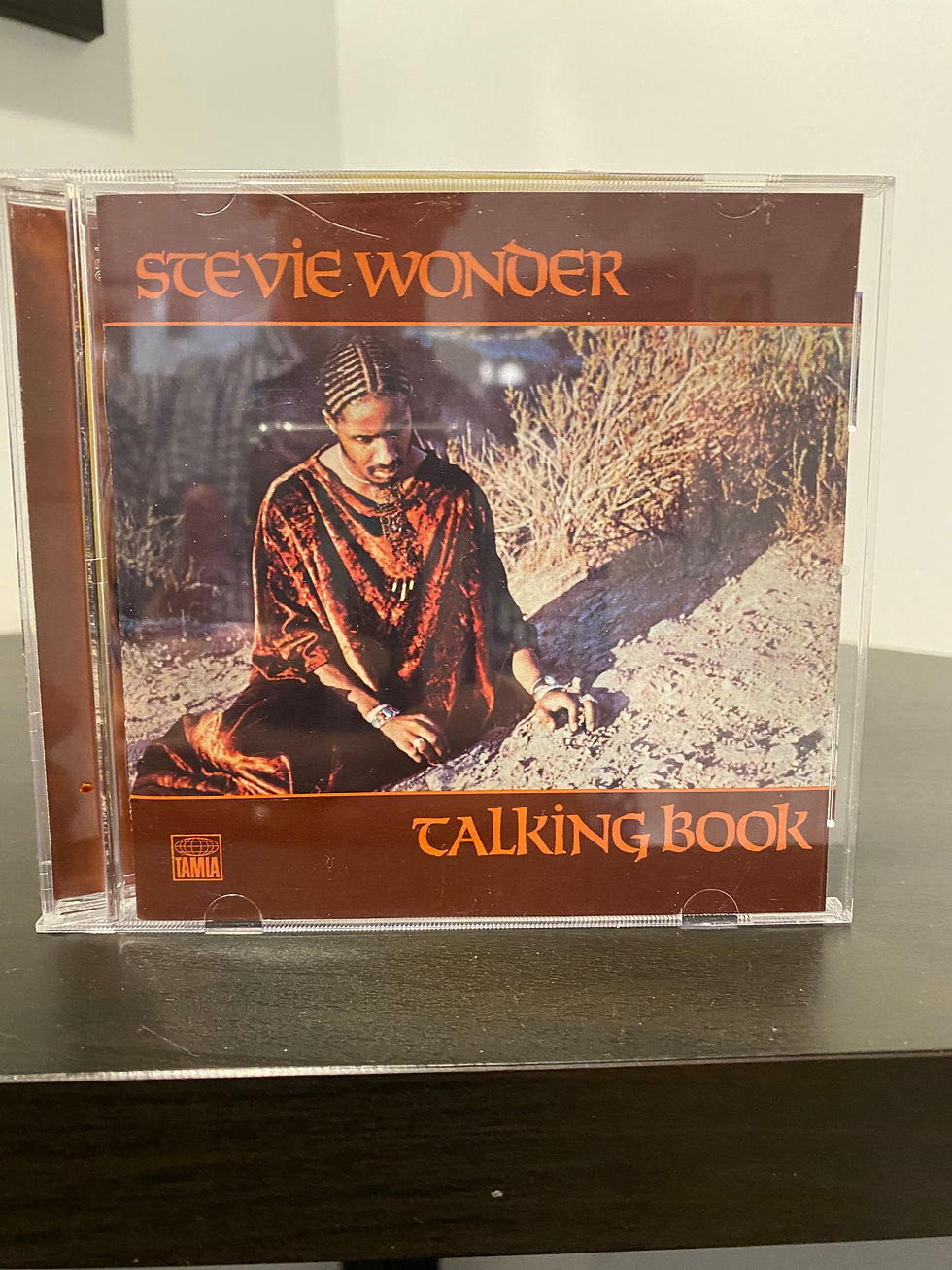I Own That CD! - Stevie Wonder
- Mar 8, 2021
- 2 min read
Here is my music. It is all I have to tell you how I feel. Know that your love keeps my love strong.
These are the words that are written on the inside cover of the CD cover of today’s pick for I Own That CD!
By the early 1970s, Stevie Wonder had already spent nearly a decade churning out hits for Motown Records as Little Stevie. But at age 22 he no longer wanted to follow the Motown formula, a formula designed to produce hit singles rather than innovation. So Wonder struck out on his own with Talking Book.

Talking Book, released in 1972, showed that Stevie Wonder was more than a hit maker of catchy tunes with not a ton of substance. He wrote and produced songs that had a groove while making you think about social issues and relationships. Wonder said in an NPR interview that Talking Book was a turning point, his first real growth as a boy becoming a man. And making all of the artistic decisions himself and relying less on Motown head Berry Gordy for direction, Stevie Wonder proved his independence as an artist. The album also helped destroy the myth that R&B artists were incapable of creating music that could be appreciated by rock audiences.
Talking Book marked another change in how Wonder performed and recorded – It was, for the most part, a one-man band. Entirely self-produced, the CD does contain some excellent guest musicians including guitarist Jeff Beck (who Wonder originally wrote “Superstition” for), guitarist Ray Parker Jr. and saxophonist David Sanborn, while some of the songs were co-written with singer and songwriter Syreeta Wright, Wonder's wife from 1970-1972.
Talking Book contains some of Wonder’s greatest songs – “You Are the Sunshine of My Life”, “You and I”, “I Believe (When I Fall In Love It Will Be Forever)” and of course “Superstition”.
"Superstition" was a song where Wonder created a sound people had never heard before. According to music critic Tom Moon, it was the first time audiences heard a lot of Clavinet, a five-octave electronic instrument similar to an electric piano. "When you hear that Clavinet intro to 'Superstition,' he says, "what you're hearing is someone who is interacting with an instrument and figuring out how to make it sound like him. No one else plays the Clavinet like Stevie Wonder does. He made it speak."
Wonder says he imagined the whole song in a flash while on tour with The Rolling Stones. "I was sitting on the drums," he says, "and the first thing that I put down were the drums and then after that I put the Clavinet down, and really, I just starting singing the melody.
Talking Book was the second album Wonder released in 1972 – the first being Music Of My Mind and thus began a string of albums (Innvervisions, Fulfillingness' First Finale and Songs in the Key of Life)that cemented Wonder’s spot in the upper echelon of performers.
Like last week’s feature, Dusty in Memphis, Talking Book is one that EVERYONE should own, so go out and find it or at least check it out on your favorite music streaming service – or if you’ve got a CD player, you can borrow my copy.
.jpg)



Superstition. One of 7 of my signature karaoke songs. I love Dave's Mixtape!